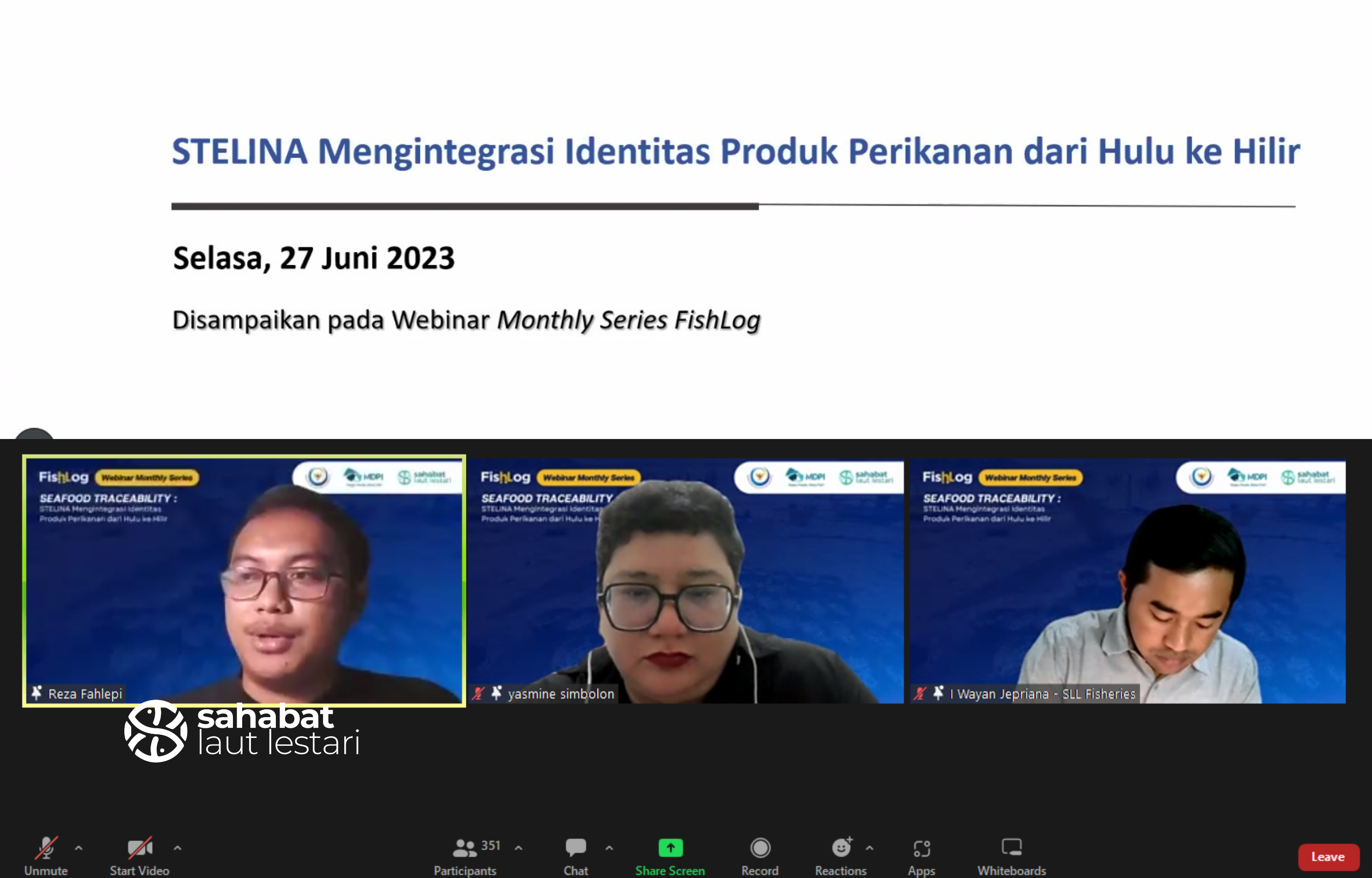On June 27, 2023, Sahabat Laut Lestari was honored to be a speaker at the Fishlog webinar on Seafood Traceability: STELINA integrates the identity of fishery products from supply to demand. Together with speakers Harlin from Ditjen PDSPKP, Yasmine Simbolon from Yayasan Masyarakat dan Perikanan Indonesia (MDPI Foundation), and Reza Fahlepi from FishLog, we discussed the importance of traceability in the seafood industry and how STELINA can help to improve the efficiency of the fishing industry supply chain and empower fishery business owners at all scales.
What is Seafood Traceability?
Seafood traceability is the ability to track the movement of seafood products through the supply chain. This means being able to identify where the seafood came from, how it was caught or farmed, and how it was processed and distributed.
Traceability is important for a number of reasons. First, it can help to ensure the safety of seafood products. By knowing where the seafood came from, we can identify potential risks to human health, such as the presence of harmful bacteria or contaminants.
Second, traceability can help to prevent illegal fishing practices. By tracking the movement of fish products, we can identify illegal fishing activities, such as overfishing and IUU fishing.
Third, traceability can help to promote sustainable fisheries. By knowing where the seafood came from, we can make informed choices about the products we purchase and help to protect our oceans.
The Vital Role of Traceability in the Seafood Industry:
Traceability has become a critical aspect of the seafood industry, as consumers are increasingly concerned about the origin, sustainability, and safety of the products they purchase. By establishing a comprehensive traceability system, the industry can enhance transparency, accountability, and trust throughout the supply chain. This allows consumers to make informed decisions while promoting sustainable fishing practices.
How Can STELINA Help the Seafood Industry?
STELINA is a traceability program developed by the Ministry of Marine Affairs and Fisheries (MMAF) of Indonesia. STELINA stands for Sistem Keteluasuran dan Logistik Ikan Nasional
STELINA is a web-based traceability system that allows stakeholders in the seafood industry to track the movement of seafood products through the supply chain. STELINA is designed to be user-friendly and accessible to all stakeholders, regardless of their size or scale.
STELINA can help the seafood industry in a number of ways, including:
- Improving the efficiency of the supply chain: STELINA can help to track the movement of seafood products through the supply chain, which can help to identify inefficiencies and bottlenecks. This can lead to cost savings and improved product quality.
- Empowering fishery business owners: STELINA can help fishery business owners to access new markets and improve their bottom line. By providing traceability data, STELINA can help fishery business owners to demonstrate the sustainability of their products, which can make them more competitive in the marketplace.
- Preventing IUU fishing: STELINA can help to track the movement of fish products and identify illegal fishing activities. This can help to protect Indonesia’s marine resources and ensure that seafood consumers are getting a sustainable product.
- Building a sustainable business ecosystem: STELINA can help to build a sustainable business ecosystem in the fisheries sector by promoting traceability, efficiency, and sustainability. By providing a platform for stakeholders to share data and collaborate, STELINA can help to create a more sustainable and equitable seafood industry.
During the webinar, participants recognized the importance of collaboration among stakeholders to promote sustainable fisheries. The integration of STELINA within the industry requires the active involvement of government agencies, fishing communities, fishery business owners, and consumers. Through collective efforts, it becomes possible to build a robust and sustainable business ecosystem that fosters responsible fishing practices and supports the livelihoods of coastal communities.
If you are interested in Traceability Software integrated with STELINA please contact us or learn more here.

